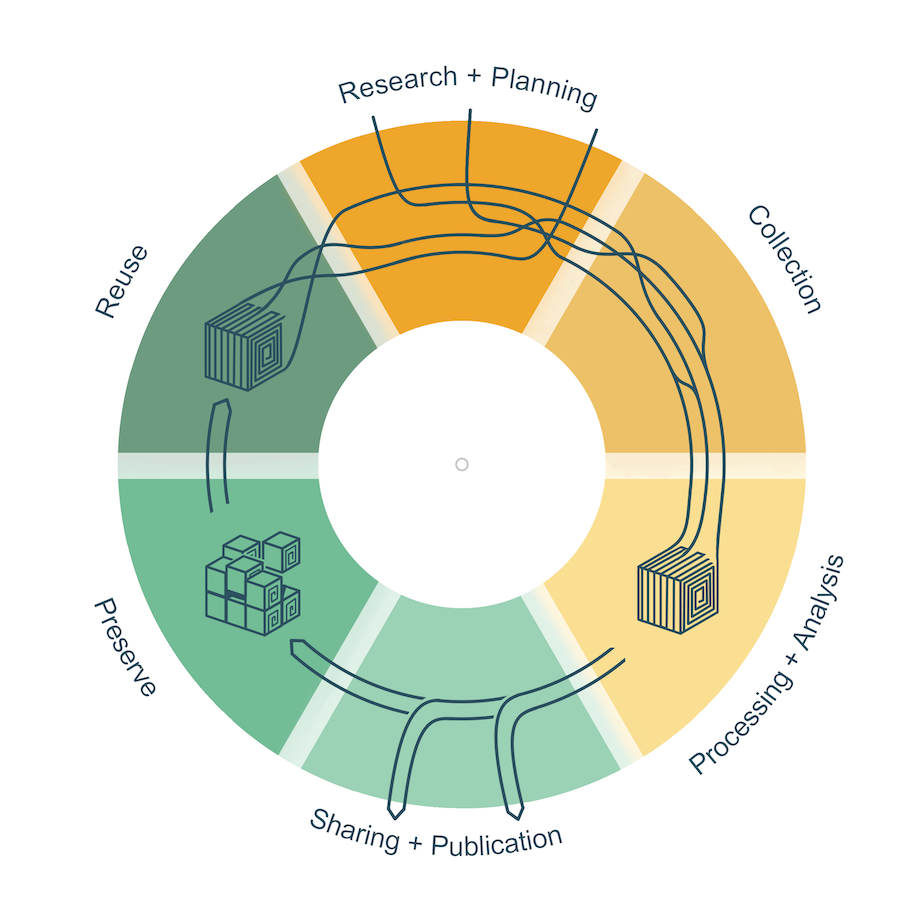What is Data Management?
In the course of a project, research data pass through various stages. With proper research data management, you process your data securely and efficiently at each stage and make it usable beyond your publication.
Data management planning
A Data Management Plan (DMP) is created at the beginning of a project and describes how data is created, processed, secured and finally archived and shared in a project.
Anyone can set up an individual DMP.
What goes into a data management plan?
A DMP provides a comprehensive description of how data from a research project will be managed throughout its entire data lifecycle. This includes, among other things:
- how the data will be collected, stored, processed, shared, and archived
- how the data will be managed securely (access, handling of personal data, etc.)
- who is responsible for which aspects and stages of data management
The Swiss National Science Foundation provides an overview of the various questions that a DMP should answer. These cover the entire data lifecycle.
You can find out more in our tutorial:Tutorial: How to write a DMP for the SNSF
What Are the Benefits of a Data Management Plan?
A DMP helps you:
- to structure, describe and store your research data in a meaningful way and to make the data usable for others
- to manage your data and often the entire research project more efficiently
- to keep track of your own data output,
- to guarantee the continuity of data management if project staff leave or new researchers join
- to handle personal data, as well as copyright issues, safely
We Review Your DMP for You
Get in touch and send us your DMP-draft:data@ub.uzh.ch.
Learn more
Do You Have Technical Questions?
Science IT supports UZH researchers in technical matters for software solutions, data storage, data management and data visualization.
Do You Have Domain-Specific Questions?
Get in touch with a data steward: Data Stewards Network
